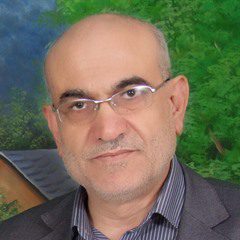There are many reasons why the Syrian regime is still in control after more than two years of revolution. At the forefront is its reliance on a minority to control the military and security agencies as well as support from other minorities and, indeed, some of the wider majority, in addition to unlimited support from Iran and Russia. Perhaps most important is the American and Western position that supports Israel’s vision of prolonging the conflict to achieve several goals. These include the destruction of Syria as a single entity; exhausting Iran, Hezbollah, Turkey and the Arab Spring; and inciting violence between the Sunni and Shia.
Nevertheless, this does not explain how a massive revolution with foreign support appears to be losing the war. The inadequacy of that foreign support is insufficient for it to be called a flaw in the revolution; it may be less than is desired, particularly in terms of arms when compared with Iranian support for the regime and the involvement of Hezbollah, but that does not explain the slackening of the revolution’s impetus.
There is a serious problem for the revolution in the absence of a unified command, in sharp contrast to the regime, whose military tactics are supervised by Iran. There are dozens, perhaps more, opposition battalions operating more or less independently with little strategic management, despite the improvement in this respect shown in Al-Qusayr. However, it still didn’t achieve the desired result. Chaos rules; fighters are sitting doing nothing while others are clashing with government forces on a daily basis without the additional support that those with no specified objectives could give.
To be frank, when the revolutionaries made progress in the second half of 2012 it was suggested that the regime was on the verge of collapsing. That drove many to focus on the spoils of war instead of the job at hand; we saw them fighting over the bear skin before they had even killed the bear. The resultant emergence of “leaders” who have no real love for the revolution has confused domestic and international supporters. Do they or do they not have genuine revolutionary credentials?
Such chaos requires opposition groups and their supporters to take much firmer positions, in public or in private, in order to reorganise matters in the field to bring about the end of the regime as soon as possible. Arms alone will not help unless they are accompanied by a corresponding shift in terms of revolutionary leadership, militarily and politically. The revolution is no longer simply facing an exhausted and drained army; it is up against voluntary fighters motivated by their faith who are experienced in the field, and others who have been trained and equipped well by the Iranians.
However, even if support from the West is increased it will be conditional on Israeli-set conditions that the conflict must be prolonged not brought to an end. Thus, we will not see advanced weapons being passed to the revolutionary forces “in case they fall into the wrong hands”.
This raises the issue of external attitudes towards elements of the opposition which belong to Islamic groups, not all of whom are favoured by the West. Of course, there are concerns about Al-Qaeda affiliates being involved but moderate Islamist forces are also under close scrutiny. What needs to be kept in mind, though, is that a victory for Bashar Al-Assad is a victory for Iran and sectarianism, which could have a massive impact on the whole Middle East. Reform agendas could, as a result, be amended drastically or postponed indefinitely.
Away from the military front, while it is astonishing that the public has been involved in street demonstrations and action for so many months, it is equally surprising that many now seem to be so quiet and, it must be said, apparently quite resigned to Assad remaining in power. In some cities, life carries on as if nothing has happened.
It would be inaccurate to say that the cities and people are supportive of the regime but they fear going back onto the streets and there is nobody to guide them. A central leadership would not only be able to galvanise civil action but also give the growing coalition outside the country a strength that would be no less important than that of the military wing.
Such civil action would not be limited to marches; leafleting, graffiti, mass action such as turning off the lights at a given time, and so on, can all constitute a major demonstration of dissatisfaction with the regime. The revolution needs to be restored to its status as a popular uprising for freedom; that’s how it started before the military aspect took centre stage in response to Assad’s brutal tactics. This will change international public opinion which, at the moment, views the conflict as a war between the state and armed groups rather than the popular protest that it was and should be again. In turn, this will put political and moral pressure on the countries currently supporting the regime as well as the Arab world.
It remains to say that thinking now solely about the potential gains arising from the regime’s downfall is a recipe for disaster. Let’s get the regime out of office first and then discuss the spoils. In the short term, this may save the region from a sectarian war that will undo all of the positive changes that have taken place, reviving the Arab Spring in the process.
The author is a Jordanian writer. This is a translation from the Arabic text first published by Al Jazeera net on 15 June, 1013
The views expressed in this article belong to the author and do not necessarily reflect the editorial policy of Middle East Monitor.











